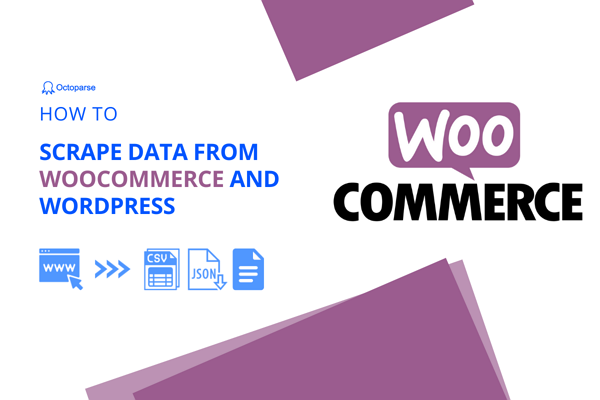
Understanding the WooCommerce Ecosystem: A Strategic Overview
In the dynamic world of digital commerce, WooCommerce has emerged as a powerhouse platform, transforming how businesses approach online selling. As an open-source e-commerce solution built on WordPress, WooCommerce provides unprecedented flexibility for entrepreneurs and established brands alike. But beyond its surface-level functionality lies a complex ecosystem ripe for strategic data extraction.
Imagine having the ability to understand your competitors‘ product strategies, pricing models, and market positioning with unprecedented precision. This is where WooCommerce scraping becomes not just a technical skill, but a strategic business intelligence tool.
The Evolution of E-Commerce Data Extraction
The journey of web scraping has been nothing short of revolutionary. From rudimentary screen-scraping techniques to sophisticated, AI-powered extraction methodologies, the landscape has transformed dramatically. WooCommerce, with its robust architecture and extensive plugin ecosystem, presents unique opportunities and challenges for data professionals.
Technical Foundations of WooCommerce Scraping
Architecture and Access Points
WooCommerce offers multiple data access mechanisms, each with distinct advantages and complexities. Understanding these pathways is crucial for developing an effective scraping strategy.
1. REST API Extraction
The WooCommerce REST API represents the most structured and recommended approach for data retrieval. By leveraging official API endpoints, developers can extract product information with minimal friction. This method provides:
- Standardized data formats
- Built-in authentication
- Controlled request mechanisms
- Comprehensive product detail access
import requests
class WooCommerceAPIExtractor:
def __init__(self, base_url, consumer_key, consumer_secret):
self.base_url = base_url
self.auth = (consumer_key, consumer_secret)
def extract_products(self, page=1, per_page=100):
endpoint = f"{self.base_url}/wp-json/wc/v3/products"
response = requests.get(
endpoint,
auth=self.auth,
params={‘page‘: page, ‘per_page‘: per_page}
)
return response.json()2. HTML Parsing Techniques
When API access is restricted, HTML parsing becomes a viable alternative. This approach requires more sophisticated handling but can extract data from virtually any WooCommerce store.
import requests
from bs4 import BeautifulSoup
class WooCommerceHTMLExtractor:
def __init__(self, base_url):
self.base_url = base_url
self.headers = {
‘User-Agent‘: ‘Professional Data Extraction Agent/1.0‘
}
def extract_product_details(self, product_url):
response = requests.get(product_url, headers=self.headers)
soup = BeautifulSoup(response.content, ‘html.parser‘)
product_data = {
‘name‘: soup.find(‘h1‘, class_=‘product_title‘).text.strip(),
‘price‘: soup.find(‘span‘, class_=‘price‘).text.strip(),
‘description‘: soup.find(‘div‘, class_=‘woocommerce-product-details__description‘).text.strip()
}
return product_dataLegal and Ethical Considerations
Navigating the legal landscape of web scraping requires nuanced understanding. While data extraction isn‘t inherently illegal, ethical considerations and website terms of service must be carefully respected.
Key Legal Principles
- Respect robots.txt directives
- Implement reasonable request rates
- Avoid overwhelming server resources
- Provide clear identification of scraping activities
- Obtain explicit permission when possible
Advanced Extraction Strategies
Distributed Scraping Architecture
Modern scraping demands sophisticated, scalable approaches. By implementing distributed architectures, you can:
- Parallelize extraction processes
- Implement intelligent proxy rotation
- Handle large-scale data collection
- Minimize detection risks
Performance Optimization Techniques
Efficient scraping isn‘t just about collecting data—it‘s about doing so with minimal resource consumption and maximum reliability.
Caching and Efficiency Strategies
- Implement Redis/Memcached for intermediate storage
- Use intelligent caching mechanisms
- Minimize redundant extraction cycles
- Implement intelligent retry logic
Error Handling and Resilience
Robust scraping solutions require comprehensive error management. Implementing intelligent fallback and recovery mechanisms ensures consistent data extraction.
def resilient_extraction(url, max_retries=3):
for attempt in range(max_retries):
try:
return extract_data(url)
except RequestException as e:
if attempt == max_retries - 1:
log_error(e)
return None
time.sleep(2 ** attempt) # Exponential backoffMarket Trends and Future Outlook
The WooCommerce ecosystem continues evolving, with emerging trends suggesting more sophisticated data extraction methodologies. Machine learning and AI are increasingly being integrated into scraping technologies, enabling more intelligent, adaptive extraction strategies.
Emerging Technologies
- Automated schema detection
- Intelligent pattern recognition
- Serverless scraping architectures
- Containerized extraction solutions
Practical Implementation Recommendations
- Start with comprehensive research
- Develop a clear extraction strategy
- Implement robust error handling
- Continuously update extraction techniques
- Maintain legal and ethical compliance
Conclusion: Strategic Data Intelligence
WooCommerce scraping transcends mere technical exercise—it represents a strategic approach to understanding digital marketplaces. By combining technical expertise, ethical considerations, and intelligent methodologies, businesses can transform raw data into actionable insights.
The future of e-commerce intelligence lies not just in collecting data, but in extracting meaningful, strategic understanding from complex digital ecosystems.
Disclaimer: Always ensure compliance with website terms of service and applicable legal regulations when implementing web scraping techniques.










